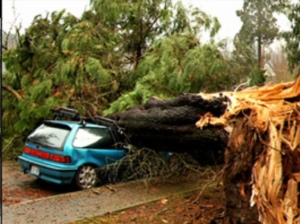 Thank you for calling. Your call is important to us and will be taken by the next available customer service representative.
Thank you for calling. Your call is important to us and will be taken by the next available customer service representative.
I wait while my call is routed to Bangladesh. Which I don’t mind–the wait, I mean. (I don’t even mind that someone half-way around the world speaking broken English will try to help me. Everyone’s got to eat.) What I do mind is the music, the on-hold music. More often than not, it is a 12-year old Top 40 hit that I didn’t like at the time and that I certainly don’t want to listen to now. That I have to listen to now, if I am to have any hope of ever speaking to a real person. Played through the tinny speaker of my cell phone, it is a double assault on my ears, sounding like one of those old Victrola machines played at a high volume in a wind storm.
Due to an unusually high volume of calls, your estimated wait time is eight to thirteen minutes.
There is nearly always an unusually high volume of calls. (Couldn’t we put more of those third-world sufferers to work?) What is a usually high volume? What’s an ordinary volume? It doesn’t matter, the music is still the same. (Or, depending on your perspective, the noise. For more on that, see my post “If a tree falls in a forest, is it music to the ears?”) I can hold the phone away from my ear, like I do when my mother-in-law calls; I can put it on speaker phone and walk across the room. But I can’t get away from it.
Did you know that you can have most of your questions answered by visiting our website?
Yes, I did know that. The website suggested I call this number. What it doesn’t answer is why this crappy music? No mind; I thought of a solution: a technology that enables the listener to choose his own music, perhaps from the MP3 files on his phone. Now, that would be tolerable. I took this idea to a friend of mine who works in the telecommunications business. “The technology’s already there,” he told me. But, he explained, the telecom companies aren’t going to let you get at it. “In fact,” he said, “they’re all moving away from music; soon all you’ll hear is paid advertising. It’s another source of revenue for them.”
Have you considered having hip replacement surgery now, before the cost goes up? Our trained staff (the ones in Bangladesh?) can help you choose from among our available options.
So here we go. I’ll soon be a customer who has already paid for a product from the people I’m calling. The product isn’t working correctly. I’m using a cell phone plan that I pay for to make the call. The minutes are adding up, and I am now captive to advertisements I don’t want to hear. It’s sort of like paying $27,000 for a new car and riding around with a license plate frame that advertises the dealership. Shouldn’t they be paying me? The music was bad enough.
We’re sorry; our office is now closed. Please try your call at another time.
Sent from my iPad



